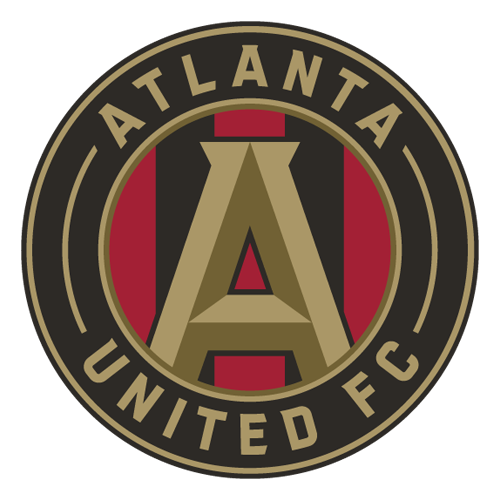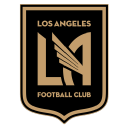The wave of expansion in Major League Soccer dating to the 2015 season has taken the league to new heights, with international brands, famous owners and seemingly unlimited ambition driving clubs to spend and innovate like never before.
That began in earnest in 2017, with the arrival of Atlanta United FC, who won MLS Cup in their second season of existence, and was further cemented when LAFC joined the league in 2018 and won the Supporters' Shield with a record points haul in 2019.
Yet those standout sophomore seasons remain their respective high-water marks. Atlanta has been in a tailspin ever since manager Gerardo Martino left the club after that MLS Cup triumph, burning through two big-name managers (Frank de Boer, Gabriel Heinze) along the way. And on the other side of the country, the Black and Gold followed up that record-setting Supporters' Shield with a seventh-place finish in the Western Conference, a position they lie in ahead of Sunday's trip to take on Atlanta (4 p.m. ET, stream live on ESPN).
So how do these teams, who were once meant to herald a new era in MLS, return to glory? We asked Jeff Carlisle and Kyle Bonagura.
- Stream FC Daily on ESPN+
- MLS on ESPN+: Stream LIVE games and replays (U.S. only)

Atlanta United
From the moment Martino left Atlanta, the Five Stripes have been on a steady slide down the MLS pecking order. Granted, one could argue there is nowhere to go but down from that lofty perch, but a cup double in 2019 gave way to missing the postseason altogether in 2020. The 2021 campaign hasn't yielded anything better, leaving Atlanta six points out of the East's seventh and final playoff place.
Now the club is hoping it is entering a new era. Atlanta announced on Thursday that Seattle assistant Gonzalo Pineda will become Atlanta's next manager. Given that this is Pineda's first managerial appointment, it remains to be seen exactly how he will operate, but if he needs a blueprint for what needs to be done, he should look at the job that Rob Valentino did on an interim basis.
There's been more of an emphasis on entertaining in the belief that it's not only what Atlanta fans demand, but one that is more likely to translate into results. With Ezequiel Barco driving at defenses and Marcelino Moreno looking more comfortable on the field than he ever has in an Atlanta shirt, the team's play has been easier on the eyes. Sure, there are some defensive shortcomings to address, but Atlanta seems to be pointed in the right direction again, and with Luiz Araujo now joining the ranks, a playoff spot is possible.
Pineda will need to lean on Valentino not only in terms of tactics, but also with regard to managing the team's personalities -- forward Josef Martinez among them. Just about any manager will appear to be operating with a softer touch than the hard-line, uncompromising approach of Heinze, but Valentino's relationship with the players has been years in the making, one borne of endless video sessions, leading to a level of trust that the long-time assistant knows what he's talking about. And he has allowed the team to play with a level of freedom that his two most recent predecessors didn't.
"He's got the whole locker room with him," said one former Atlanta player about Valentino. "It's not just the English-speaking players. That, for me, says something."
Pineda will need to tread carefully in terms of how quickly he puts his own stamp on things. Martino had the benefit of operating with a blank canvas, but De Boer and Heinze, each in their own way, were too much of a departure from what took place before. While both were tactically astute, they not only veered from the club's ethos, but didn't connect with players in the way Martino did. Martino had his own issues in terms of adjusting to MLS, but he was flexible enough and listened to veteran players sufficiently to get everyone on board.
Pineda's reputation in Seattle was one where he was both instrumental in manager Brian Schmetzer's tactical approach as well one who connected with players. If Pineda can indeed tick both the tactical and man-management boxes, he will have succeeded where De Boer and Heinze failed. -- Jeff Carlisle

LAFC
As LAFC struggled to match their historic 2019 form last season, there were plenty of logical explanations. COVID-19 created a weird season to begin with, and the strain it placed on players -- particularly young and international ones -- was a problem without easy solutions. That wasn't unique for LAFC, but it's impossible to quantify the impact it has around the league. Stringent local training regulations and the inability to host fans, even as other stadiums opened up late in season, also played a role.
The biggest issue, though, was that star player Carlos Vela, coming off arguably the single-greatest individual season in league history, was injured and unavailable for large stretches of the season. With Vela healthy by the end of the year, a playoff run still seemed plausible until four key players -- Golden Boot winner Diego Rossi, Designated Player Brian Rodriguez, left-back Diego Palacios and midfielder Jose Cifuentes -- all contracted COVID-19 on international duty in South America and were unavailable to feature against Seattle in the first round. LAFC lost 3-1.
Still, there was time to regroup for the CONCACAF Champions League. After previously beating Club Leon before the COVID outbreak, LAFC knocked out Cruz Azul and Club America to advance to final, where they fell 2-1 to Tigres.
That's a lot to set up why expectations for 2021 were so high. When healthy over the previous two years, LAFC had been the best team in the league. Now, 18 matches into the season, not only have they failed to reach that standard, but they find themselves on the playoff bubble.
There's a lot to dissect here, but let's start up front. Since Adama Diomande left the club a year ago, there has been a glaring hole at striker. Vela, Rossi and Rodriguez -- the team's three DPs -- are all wingers, which has never been an ideal use of those roster slots considering coach Bob Bradley's preferred 4-3-3. (Rodriguez started the season on loan in the Spanish second division and only recently returned to the club when Almeria did not get promoted). Corey Baird got a run to start the season, but that didn't work, and Danny Musovski never figured to be the long-term solution. Last month, the team acquired Cristian Arango from Millonares in Colombia, but it's too early to assess his fit.
More can be asked of the midfield, but there is enough quality and depth in the position group to where general manager John Thorrington felt compelled to trade stalwart Mark-Anthony Kaye to Colorado.
The bigger problems have been at the back.
In search of solutions, Bradley has implemented a 5-3-2 (or 3-5-2, depending on one's perspective) at times, using Palacios and South Korea international Kim Moon-Hwan as wing-backs. There was some initial success in that formation, but it's less sustainable following the acquisition of Arango, return of Rodriguez and season-ending ACL injury to center-back Eddie Segura. Sebastian Ibeagha's arrival from New York City FC provides much-needed depth, but the combination of him, Tristan Blackmon and Jesus Murillo playing in front of 20-year-old goalkeeper Tomas Romero is very much an unproven experiment.
This remains one of the most talented rosters in the league and Bradley is one of the sharpest minds American soccer has ever known, so there is plenty of reason to allow for a turnaround. And that's the beauty of MLS: A poor first half doesn't mean the season is completely lost. -- Kyle Bonagura


